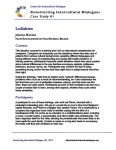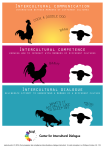The Center for Intercultural Dialogue produces a number of in-house digital publications. All of them are available free of charge on the site.
 Key Concepts in Intercultural Dialogue, a series of 1-page briefs, started in 2014. The goal is to provide some of the assumptions and history attached to each concept for those unfamiliar with it. Key Concepts have been downloaded dozens, hundreds, or thousands of times, depending on the topic. These are organized in several ways:
Key Concepts in Intercultural Dialogue, a series of 1-page briefs, started in 2014. The goal is to provide some of the assumptions and history attached to each concept for those unfamiliar with it. Key Concepts have been downloaded dozens, hundreds, or thousands of times, depending on the topic. These are organized in several ways:
- List of key concepts available in English, arranged alphabetically by concept.
- List of key concepts available in English, arranged by publication number and date.
- List of concepts available in translation, arranged alphabetically by language, and then by concept in that language.
- Authors and translators are acknowledged on the concepts they write or translate; authors, translators, and translation reviewers are listed on this page of acknowledgments.
Constructing Intercultural Dialogues started in February 2017 as a series of case studies. The goal is to provide concrete examples of how actual people have managed to organize and hold intercultural dialogues, so that others may be inspired to do the same.
- List of case studies available in English, arranged by publication number and date.
- Authors and translators are acknowledged on the case studies they write or translate; authors, translators, and translation reviewers are listed on this page of acknowledgments.
CID Posters started in June 2017. Academics typically write a lot of words, and don’t worry much about how they are displayed, on the assumption that ideas stand on their own merits. One advantage in having a website is the ability to integrate images with words, and thus to change the ways in which words are shown and shared. This is important because research shows that images are shared far more often than just words. We’ve been delighted to learn that faculty members in multiple countries have printed out these posters and put them up on doors and bulletin boards!
- List of posters, arranged by date of publication.
- Designers are credited on the individual posts introducing each poster. The sources of the quotes used are credited on the posters themselves.
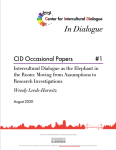 In Dialogue: CID Occasional Papers started in August 2020. The goal is to provide a place for longer discussions than are possible in any of the other publication series. There will likely be only one or two occasional papers published in any given year.
In Dialogue: CID Occasional Papers started in August 2020. The goal is to provide a place for longer discussions than are possible in any of the other publication series. There will likely be only one or two occasional papers published in any given year.- List of issues, arranged by date of publication.
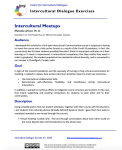
Intercultural Dialogue Exercises started in November 2020. The goal is to provide brief descriptions of exercises that can be used to encourage intercultural dialogues, whether for a short, one-day workshop or full semester course, whether they involve a single meeting or multiple meetings by participants in the dialogue. These will be presented by people who have already used them themselves, now recommending them to others.
- List of issues, arranged by date of publication.
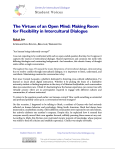 Student Voices is a new publication which began in 2023. The goal is to invite a wide range of students to tell the story of their own experience with intercultural dialogue, or what they have learned about intercultural dialogue, or what they want to share with others. See the call for submissions here.
Student Voices is a new publication which began in 2023. The goal is to invite a wide range of students to tell the story of their own experience with intercultural dialogue, or what they have learned about intercultural dialogue, or what they want to share with others. See the call for submissions here.
- List of issues, arranged by date of publication.
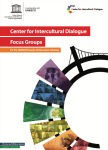 UNESCO-related publications
UNESCO-related publications
Wendy Leeds-Hurwitz was invited to prepare a substantial publication by UNESCO, and later a brief article for their e-platform for intercultural dialogue. More recently, CID was invited to participate in the UNESCO Futures of Education initiative. The result was a report, produced by CID, and submitted to UNESCO.
- Chronological listing of UNESCO-related publications.
As there are additional contributions to any of these publications that you would like to prepare (or translate, for the text-based series), send an email to CID Director and publications editor, Wendy Leeds-Hurwitz.
There are many, many relevant publications by others, of course. As we notice these, they are added to the list of Readings in ICD posted to this website. If you would like to nominate some of your own publications, or those you are reading, to be added to the list, send an email. For a full list of other CID activities, see What we do.
All CID publications are licensed under a Creative Commons Attribution-NonCommercial-NoDerivatives 4.0 International License.

